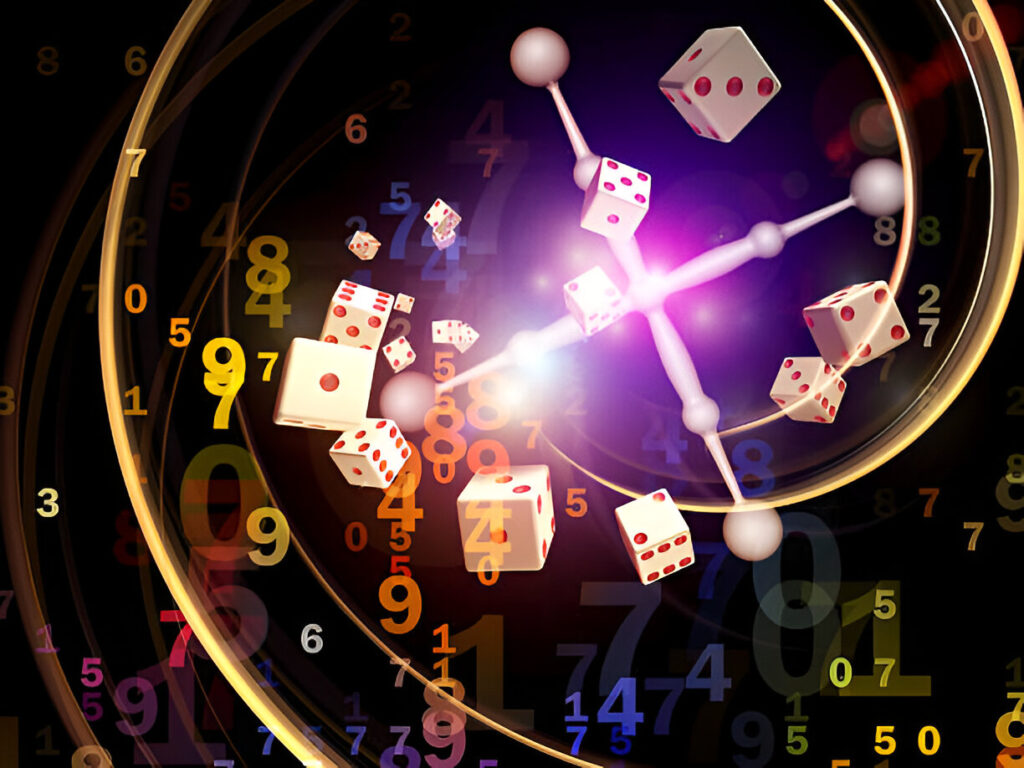Walk into any casino, and the atmosphere immediately pulls you in. The hum of conversation, the electronic chirps of slot machines, and the clatter of chips on felt tables—it all blends into a carefully orchestrated symphony designed to hold your attention. But what makes gambling so thrilling? It’s not just the chance to win money; it’s a mix of psychology, mathematics, and technology that works on your brain in ways you might not expect.
The Brain on Bets – Why We Love Risk
Gambling taps into the brain’s reward system much like drugs or sugar. The anticipation of a win, not just the win itself, triggers dopamine—a neurotransmitter linked to pleasure and motivation. This explains why even near-misses on a slot machine can feel almost as satisfying as hitting the jackpot. It’s the classic psychological trick: keep players engaged by making losses feel like they were this close to a big win.
Scientists have found that unpredictable rewards, like those in gambling, are more stimulating than predictable ones. This is known as variable-ratio reinforcement, the same principle that keeps people scrolling on social media or training a dog with random treats. Casinos and online platforms lean into this, crafting games where the next win might be just around the corner.
The Illusion of Control
Even in games of pure chance, people act as if their actions influence the outcome. This is why rolling dice yourself feels luckier than letting a dealer do it. The illusion of control leads gamblers to believe they can influence results, whether through “lucky” rituals or betting strategies.
A classic example of this cognitive bias is the gambler’s fallacy—the belief that past outcomes affect future results. If a roulette wheel lands on red five times in a row, many players believe black is “due.” In reality, each spin is independent, but the human brain craves patterns, even when they don’t exist.
The Role of Emotions in Risk-Taking
Gambling isn’t just about logic; emotions play a huge role. Excitement can push people to bet aggressively, while stress or desperation can lead to chasing losses. The fear of missing out (FOMO) adds another layer, especially in fast-paced games where hesitation could mean missing a perceived opportunity.
Casinos and betting apps capitalize on these emotional triggers. Flashy jackpots, celebratory sound effects, and countdown timers aren’t just for aesthetics; they create urgency and amplify the emotional stakes.
Math vs. Mind – The Hidden Algorithms Behind Gambling
Gambling isn’t just a game—it’s a business, and businesses don’t thrive on luck. Every casino game is designed with a built-in mathematical advantage, ensuring long-term profitability for the house. This house edge varies depending on the game, but it always exists. Slot machines, for example, return only a percentage of bets to players over time, typically ranging from 85% to 98%, depending on the machine and jurisdiction.
This slight edge might seem negligible in the short term, but over thousands of bets, it guarantees casinos a steady income. It’s why professional gamblers focus on strategies that minimize the house edge, while casual players tend to focus on the thrill of the moment.
Online Slots Pay More Than Others
One particularly interesting topic among players is why online slots pay more than others. The answer often lies in return-to-player (RTP) percentages and game volatility. Some online slots have higher RTPs than their land-based counterparts due to lower operating costs, allowing casinos to offer slightly better odds. However, volatility plays a role, meaning payouts might be less frequent but larger when they do hit.
Randomness vs. Perceived Patterns
Humans are wired to find patterns, even where none exist. This is why many gamblers believe they can spot “hot” or “cold” streaks in random games. Slot machines are a prime example. The near-miss effect—when two jackpot symbols align but the third just misses—creates the illusion that a win is coming soon, even though each spin is independent.
Lottery players fall into a similar trap. Despite astronomical odds, people continue buying tickets, convinced that their lucky numbers or past losses increase their chances. Understanding probability can help counter these illusions, but emotions often override logic.
The Tech Factor – Machines That Know You Better Than You Know Yourself
Casinos and online gambling platforms don’t just rely on human psychology; they also use artificial intelligence to track player behavior. Algorithms analyze betting patterns, time spent playing, and reactions to wins and losses. This data helps operators tailor promotions, suggest games, or even detect problem gambling behaviors (though intervention remains rare).
Adaptive difficulty is another AI-driven tool. Some slot machines subtly adjust win frequencies based on player engagement, making sure they remain enticing without breaking legal regulations. The goal isn’t just to get players in the game—it’s to keep them there.
Casino Design: A Psychological Battlefield
Casinos are engineered for maximum engagement. There are no clocks or windows, so time feels irrelevant. Maze-like layouts make it easy to get lost, keeping players immersed. Colors, sounds, and even the placement of tables and machines are designed to guide behavior, keeping high-stakes areas visually prominent while slot machines—often the biggest earners—dominate the floor.
The Role of Social Proof in Gambling Addiction
Casinos and online platforms frequently display live winner notifications. Seeing someone else win—even a stranger—sparks a sense of possibility, encouraging others to keep playing. This principle applies in poker rooms as well, where the communal nature of the game builds excitement and competition. But for solitary gambling, like slots or online betting, social proof works differently. Seeing others win reinforces the idea that a big payday is just around the corner.
The Dark Side – Addiction, Fallacies, and Financial Ruin
One of the most dangerous aspects of gambling is how it distorts decision-making. The sunk cost fallacy makes people believe they must keep betting to recoup losses, leading to spiraling debt. Time distortion plays a role as well—many gamblers report losing track of hours spent playing.
Addiction by Design: How the Industry Benefits from Problem Gambling
Gambling addiction isn’t just an accident—it’s often a byproduct of industry tactics. While casinos promote responsible gambling, they also use psychological triggers that encourage prolonged play. Features like auto-play, celebratory animations, and easy access to funds are designed to maximize engagement.
This raises ethical questions: should casinos be responsible for problem gambling? Some argue that self-exclusion programs and spending limits are little more than PR strategies. Others believe regulation should go further to curb exploitative practices.
Breaking the Spell – Can We Outthink the House?
Understanding how gambling works can be a powerful tool for making better choices. Recognizing cognitive biases—like the gambler’s fallacy or near-miss effect—helps separate logic from emotion. Setting clear limits before playing can prevent impulsive decisions. And most importantly, remembering that the house edge is always in play can keep gambling as a form of entertainment rather than a financial strategy.
Finding an excellent casino that prioritizes responsible gaming can also make a difference in maintaining a healthy relationship with gambling.



